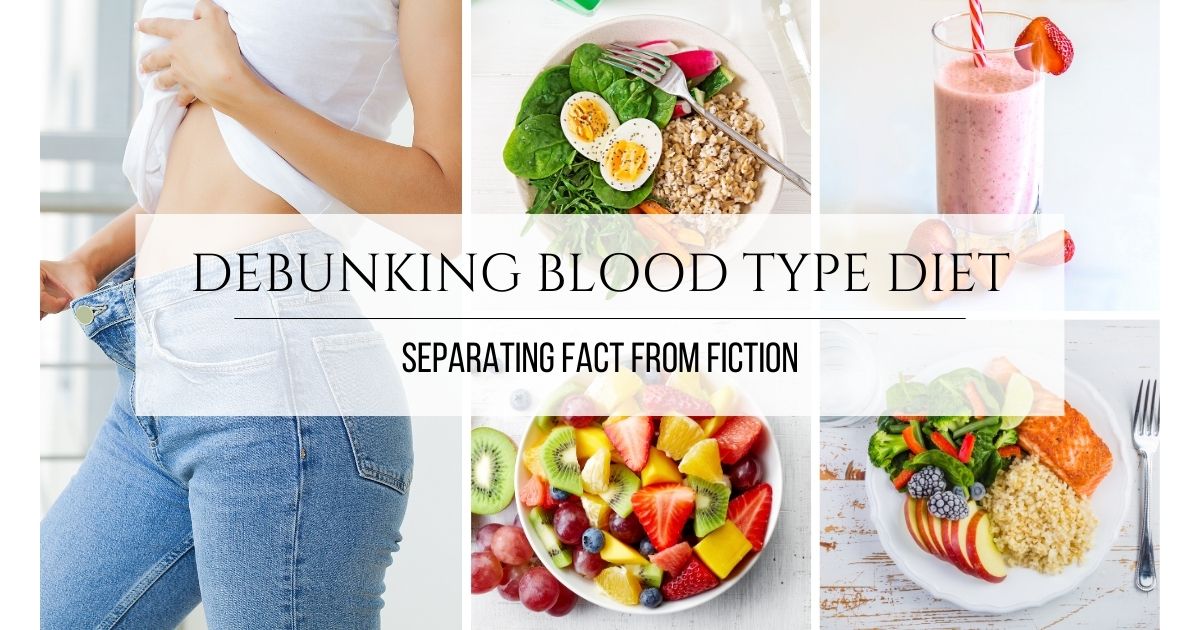Blood type diets have captivated the attention of many who seek personalized solutions for optimal health. The idea that one’s blood type can determine the most suitable diet has been a topic of both intrigue and skepticism. However, a closer look at the scientific evidence—or the lack thereof—sheds light on the veracity of these claims.
Understanding the Blood Type Diet Concept
The blood type diet, popularized by the book “Eat Right for Your Type” by Dr. Peter D’Adamo, posits that an individual’s blood type (A, B, AB, or O) dictates their dietary needs. According to this theory, each blood type evolved at different points in human history, and thus, adherents should consume foods that align with their ancestral dietary patterns. For instance, it suggests that those with type O blood should follow a high-protein diet and red meat, while those with type A should lean towards vegetarianism.
Scrutinizing the Origins and Popularity
The diet’s roots trace back to the 1990s when Dr. D’Adamo’s book catapulted the idea into mainstream popularity. Millions of copies sold worldwide, and an array of followers, including celebrities, embraced this diet, hoping for improved health and well-being. The diet’s appeal lies in its personalized approach, offering a tailored solution in an era where one-size-fits-all diets often fall short.
Examining Key Claims
Proponents argue that following a blood type-specific diet can lead to various health benefits, including weight loss, increased energy levels, and reduced risk of chronic diseases. Each blood type diet comes with a list of recommended and forbidden foods, supposedly to reduce inflammation and optimize digestion.
Scientific Evaluation and Debunking Myths
Despite its widespread popularity, it lacks robust scientific backing. Numerous nutrition experts and medical professionals criticize its scientific rationale, pointing out inconsistencies and the absence of concrete evidence linking blood types to dietary needs. Research, including a comprehensive study highlighted by the Physicians Committee for Responsible Medicine, found no evidence supporting the diet’s effectiveness.
The Appeal and the Skepticism
The allure of personalized nutrition is undeniable, as people yearn for dietary guidance that resonates with their unique physiological makeup. However, it’s simplification of complex nutritional needs into blood type categories oversimplifies human biology. While it’s true that certain dietary strategies may benefit some individuals more than others, attributing these benefits solely to blood type is scientifically unfounded.
Transitioning from Myth to Evidence-Based Nutrition
As we delve deeper into the realm of debunking blood type diets, it becomes imperative to shift focus toward evidence-based dietary practices. Nutrition science, grounded in rigorous research and clinical trials, offers a more reliable pathway to understanding how diet impacts health.
Incorporating Reliable Nutritional Insights
While exploring the concept of blood type diets, it’s crucial to anchor our dietary choices in well-established nutritional science. Integrating a variety of whole foods, focusing on plant-based ingredients, and considering individual health conditions and preferences stand as pillars of a sound diet.
Unraveling the Myth of Blood Type Diets
In the quest to debunk it is crucial to dive into the evidence, or rather the lack thereof, and address the common queries surrounding this popular diet myth. By critically examining what science says and what practical dietary advice should look like, we can navigate away from baseless claims and toward nutritionally sound practices.
FAQs on Blood Type Diet
- Why has the blood type diet been debunked?
- The primary reason it has been debunked is due to the absence of scientific evidence supporting its claims. Researchers have conducted studies to test the diet’s principles, only to find no significant link between one’s blood type and the optimal diet. Such findings suggest that the proposed benefits of following a blood type-specific diet are not grounded in reliable scientific research.
- Can following a blood type diet be harmful?
- While following a this type of diet it is unlikely to cause harm if it provides a balanced range of nutrients, it can lead to unnecessary dietary restrictions. For instance, eliminating whole food groups based on blood type, not personal health needs, can result in nutritional deficiencies or imbalances.
- Are there any proven benefits to following this type of diet?
- No scientific studies have conclusively proven the specific benefits of following a blood type diet. While individuals may experience positive health outcomes while on this diet, such results are likely due to healthier food choices and improved dietary habits rather than blood type-specific recommendations.
- What should individuals consider when choosing a diet?
- Individuals should consider their overall health goals, dietary preferences, and any existing medical conditions when choosing a diet. Opting for evidence-based dietary guidelines that emphasize balanced nutrition, variety, and moderation is generally recommended over unproven diet fads like the blood type diet.
Transition to Evidence-Based Dietary Recommendations
Shifting focus from debunked diet myths to evidence-based nutritional advice, it’s essential to understand the components of a healthy diet that can support long-term well-being, regardless of one’s blood type:
- Emphasize a Variety of Foods: Incorporate a wide range of fruits, vegetables, whole grains, lean proteins, and healthy fats to ensure a balanced intake of essential nutrients.
- Consider Individual Needs: Personalize your diet based on individual health conditions, nutritional requirements, and lifestyle factors, rather than unproven theories.
- Seek Professional Guidance: For personalized dietary advice, consult with registered dietitians or healthcare providers who can offer recommendations based on scientific evidence and individual health profiles.
